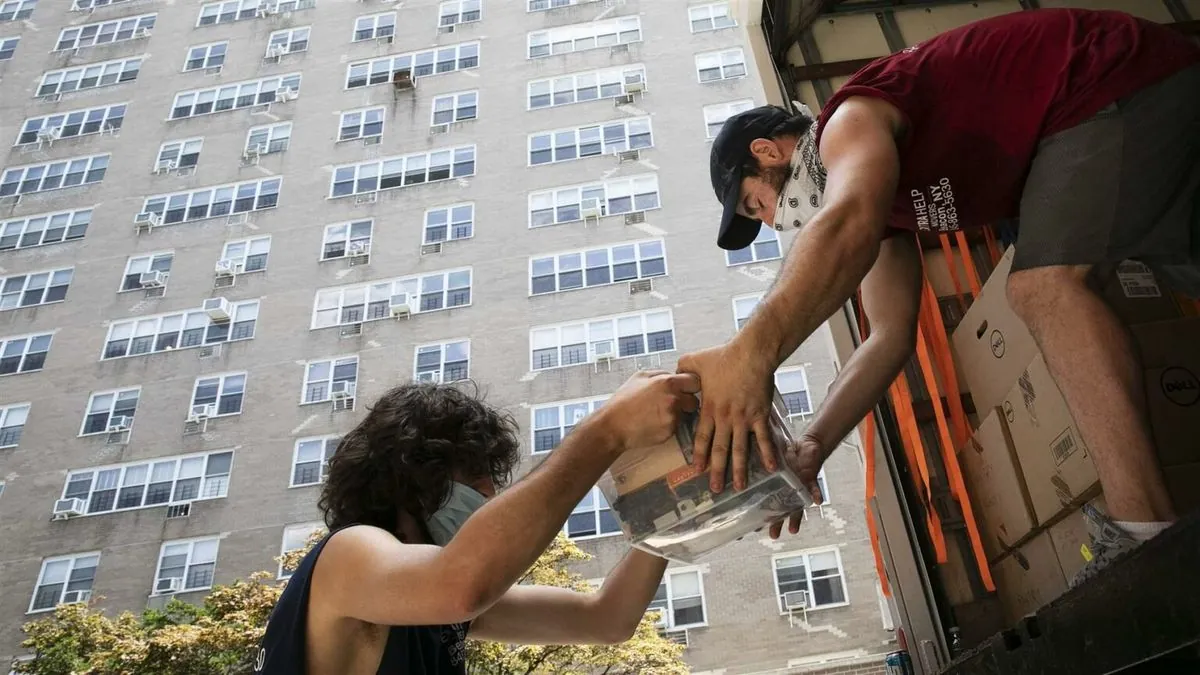Rent Costs Outpace Home Values in 2023, Highlighting Housing Crisis
Census data reveals rent and utilities costs rose faster than home values in 2023, a first in a decade. Nearly half of U.S. renters are cost-burdened, underscoring the growing housing affordability crisis.

The 2023 American Community Survey, released by the U.S. Census Bureau, has unveiled a concerning trend in the U.S. housing market. For the first time in a decade, rent and utilities costs increased at a faster rate than home values, highlighting the growing affordability crisis facing many Americans.
According to the survey, rent rose by 3.8% in 2023, compared to a 1.8% increase in inflation-adjusted median home values. This marks a significant shift from previous years, where real rent costs had grown less than 3% annually from 2011 to 2019. The data underscores the increasing financial strain on renters, who now make up a larger portion of the housing market.
The survey, which provides vital information about the U.S. and its people annually, revealed that nearly half of the nation's 42.5 million renter households were considered "cost-burdened" in 2023. This term, defined by the U.S. Department of Housing and Urban Development (HUD), applies to families spending more than 30% of their income on housing costs.

The impact of this housing crisis is not evenly distributed across demographics. Among Black renter households, more than 56% were cost-burdened, totaling 4.6 million. Hispanic renter households faced similar challenges, with over 53% being cost-burdened. White renter households also struggled, with nearly 47% falling into this category.
Homeowners have not been immune to rising costs, particularly in terms of insurance. In 2023, approximately 5.4 million of the nation's 85.7 million homeowners paid $4,000 or more annually for insurance. Florida led with the highest number (1.2 million), followed by Texas (784,000), California (560,000), New York (272,000), and Louisiana (215,000).
The roots of this housing crisis can be traced back to the Great Recession of 2007-2009, which led to a significant slowdown in new home construction. The situation was further exacerbated by the COVID-19 pandemic, which disrupted housing markets nationwide and altered living and working preferences.
"We have a shortage of housing. The cost of housing is too expensive for far too many people."
As housing has emerged as a dominant economic and political issue, candidates are proposing various solutions. Vice President Kamala Harris has suggested building 3 million more homes and offering large tax credits to assist buyers. Meanwhile, former president Donald Trump has proposed deporting undocumented immigrants to open up housing supply.
The Fair Housing Act of 1968, which prohibits discrimination in housing based on various factors, remains a crucial piece of legislation. However, the current crisis calls for more comprehensive solutions to address the structural issues in the housing market.
As the 2024 presidential election approaches, the housing affordability crisis continues to be a pressing concern for millions of Americans. The data from the 2023 American Community Survey serves as a stark reminder of the challenges facing both renters and homeowners in an increasingly complex housing landscape.


































